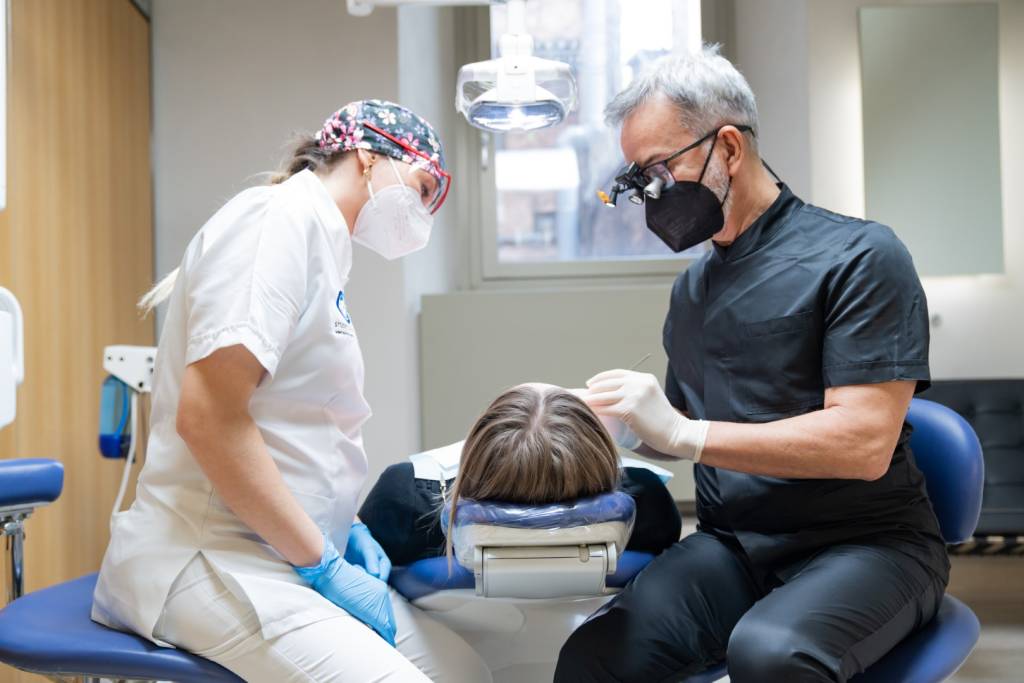WHAT IS ENDODONTICS?
In many cases, even severely damaged teeth can be recovered by endodontic therapy. Endodontics is the branch of dentistry that deals with dental pulp diseases and the recovery of teeth severely damaged due to trauma or caries.
Endodontic treatment
Endodontic treatment is an outpatient dental intervention carried out after local anesthesia, necessary when the soft tissue inside the tooth, the dental pulp, is inflamed or infected due to:
Decay
The outcome of previous interventions on the tooth
Severe and sudden or light trauma but repeated over time
Fracture or deep crack.

Dental pulp
The dental pulp, improperly called the tooth nerve, is inside the teeth. It is a tissue of arteries, veins, nerve endings, and connective cells.
In children, this tissue is responsible for forming the calcified supporting structure of the tooth (dentin). At the same time, in adults, the pulp has a residual function of sensitivity and hydration of the dentin.

When is endodontic surgery necessary?
Even after taking painkillers, prolonged pain is a frequent reason for consultation. Toothache can be caused by:
Gum disease (swollen and inflamed gums)
Pulpitis (inflammation of the dental pulp)
Dental sensitivity (exposure of the tooth root, gingival recession, or brushing abrasions), bruxism, or grinding
Fractures: Teeth can crack, chip, or fracture for various reasons. Fractures can be caused by trauma, chewing something tough, teeth grinding at night (bruxism), bone loss that can make the roots more vulnerable, and fragility of teeth due to advancing age.
Dental caries is the most frequent cause that pushes patients to consult a specialist; the progressive destruction of the tooth's hard tissues up to the dental pulp determines the onset of pulpitis.
Pulp damage caused by bacteria, if neglected or not treated properly, can give rise to critical bone damage due to the progress of the infection that produces osteolysis.
Endodontist
All endodontists are dentists, but not all dentists are endodontists.
The specialist’s training in endodontics focuses on diagnosing dental pain, treating the root canal, and the procedures related to the preservation and reconstruction of the tooth that the specialist will carry out in prosthetics.
The multidisciplinary approach
Our multidisciplinary approach allows us to diagnose and formulate effective treatment plans suitable for each patient using the best skills and the most advanced technologies among those available today, such as:
Digital X-rays
3D Cone Beam X-rays
Laser equipment
Radiofrequency scalpel
Fingerprints
The exclusive quality of our services, since 1979, has led us to be ranked among the best international firms.